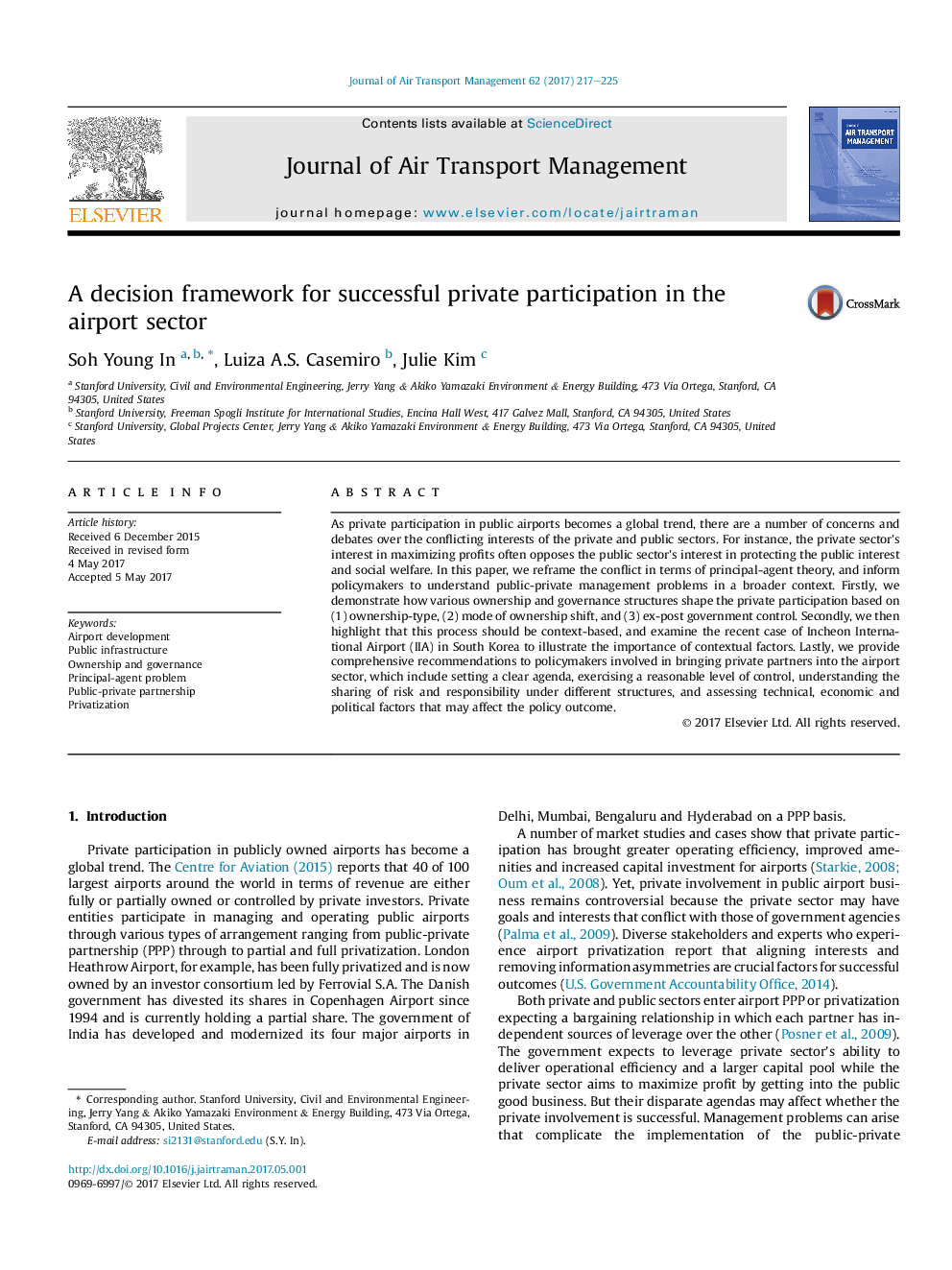| Article ID | Journal | Published Year | Pages | File Type |
|---|---|---|---|---|
| 5111479 | Journal of Air Transport Management | 2017 | 9 Pages |
Abstract
As private participation in public airports becomes a global trend, there are a number of concerns and debates over the conflicting interests of the private and public sectors. For instance, the private sector's interest in maximizing profits often opposes the public sector's interest in protecting the public interest and social welfare. In this paper, we reframe the conflict in terms of principal-agent theory, and inform policymakers to understand public-private management problems in a broader context. Firstly, we demonstrate how various ownership and governance structures shape the private participation based on (1) ownership-type, (2) mode of ownership shift, and (3) ex-post government control. Secondly, we then highlight that this process should be context-based, and examine the recent case of Incheon International Airport (IIA) in South Korea to illustrate the importance of contextual factors. Lastly, we provide comprehensive recommendations to policymakers involved in bringing private partners into the airport sector, which include setting a clear agenda, exercising a reasonable level of control, understanding the sharing of risk and responsibility under different structures, and assessing technical, economic and political factors that may affect the policy outcome.
Related Topics
Social Sciences and Humanities
Business, Management and Accounting
Strategy and Management
Authors
Soh Young In, Luiza A.S. Casemiro, Julie Kim,
